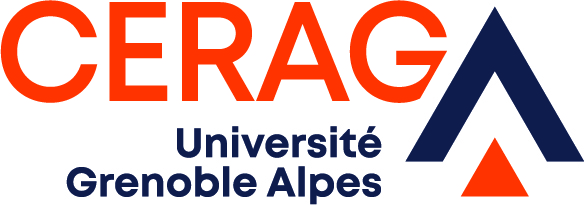How imaginary contributes to the understanding of tourist's behavior
Le rôle de l'imaginaire dans la compréhension des comportements touristiques
Résumé
Our research emerged as we thought about tourist consumption and the wealth of reactions it generates due to the infinite needs it meets. Whereas cognitive, perceptual, sensory and even emotional processes have been widely studied, we have discovered a gap in tourism marketing research on imaginative reactions. However Geographers and sociologists on tourism agree on the close link that exists between tourist system and the imaginaries that feed, shape and orient it. From here, we decided to place imaginary at the center of our reflection on the tourist-destination connection.A first qualitative method, a netnography, enables us to define the tourist imaginary around three components: representational, relational (it brings together social interaction and interaction with the place) and identity (it refers to awareness and self-image). It was supplemented by a life story approach. This makes it possible to draw three imaginative profiles (confirmed, intermediate and beginner) that each differ in a way of traveling as well as a perceived purpose of the trip. These imaginative profiles each correspond to a type of traveler (engaged, balanced, recreational) and to a specific combination of the three components of the imaginary.Mobilizing the imaginary in a context of tourism consumption thus finds all its legitimacy in the enrichment of tourism marketing research with concepts borrowed from neighboring disciplinary fields. From a managerial point of view, we suggest setting the imaginative profile as a segmentation criterion. We think that adapting the marketing mix to the target imaginative profile (s) would create value. Other theoretical, methodological and operational contributions are proposed, as well as several avenues for future research.
Notre recherche a émergé suite à une réflexion autour de la consommation touristique et de la richesse des réactions qu’elle engendre du fait de la multitude des besoins auxquels elle répond. Si les processus cognitifs, perceptuels, sensoriels ou encore émotionnels ont été largement étudiés, nous avons soulevé un gap dans la recherche en marketing touristique sur les réactions imaginatives. Géographes et sociologues du tourisme sont pourtant unanimes sur le lien étroit qui existe entre le système touristique et les imaginaires qui l’alimentent, le modèlent et l’orientent. A partir de là, nous avons décidé de placer l’imaginaire au centre de notre réflexion sur la relation touriste-destination en inscrivant celle-ci dans une perspective postmoderno-interprétative.Une première méthode qualitative, la netnographie, nous a permis de penser l’imaginaire touristique autour de trois composantes : une représentationnelle, une relationnelle (elle regroupe l’interaction sociale et l’interaction avec le lieu) et une identitaire (elle se réfère à la prise de conscience et l’image de soi). Elle a été complétée par une approche par récits de vie. Celle-ci a permis d’isoler trois profils imaginatifs (confirmé, intermédiaire, novice) qui se distinguent chacun par une façon de voyager ainsi qu’une finalité perçue du voyage. Ces profils imaginatifs correspondent chacun à un type de voyageur (engagé, équilibré, récréatif) et à une combinaison spécifique des trois composantes de l’imaginaire.La mobilisation de l’imaginaire dans un contexte de consommation touristique trouve ainsi toute sa légitimité dans l’enrichissement de la recherche en marketing touristique par des concepts empruntés à des champs disciplinaires voisins. D’un point de vue managérial, nous proposons le profil imaginatif comme critère de segmentation. Nous estimons en effet qu’une adaptation du marketing-mix au profil(s) imaginatif(s) cible(s) serait créatrice de valeur.
| Origine | Version validée par le jury (STAR) |
|---|

